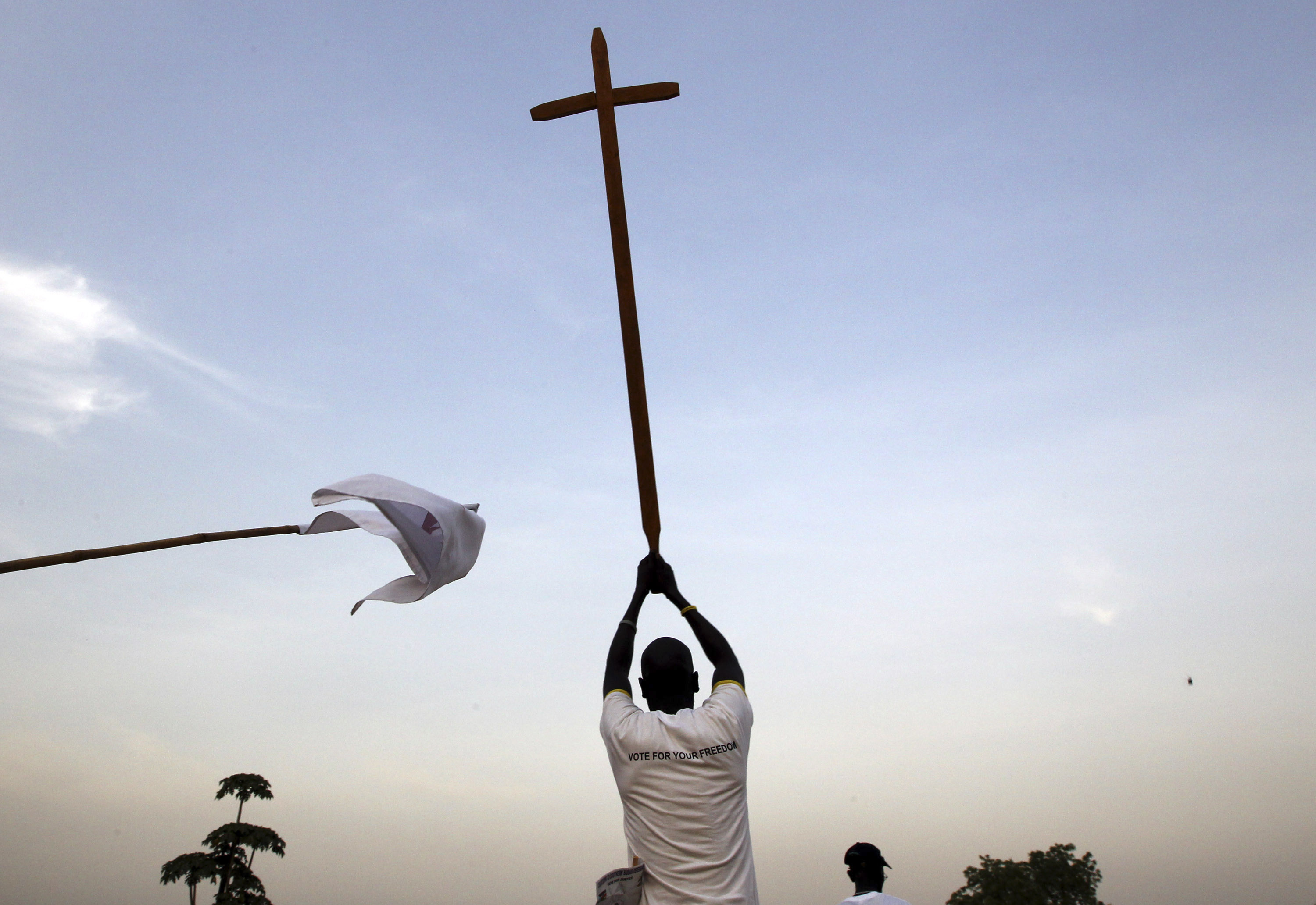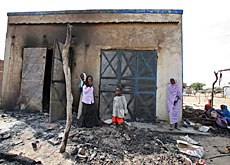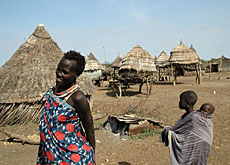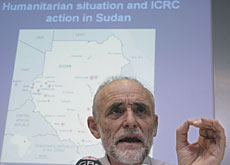Swiss on hand to ease separation of Sudan

Switzerland is poised to play a role in the discussions on the secession of Southern Sudan which is expected to be endorsed in Sunday’s independence referendum.
Michael Winzap, Switzerland’s newly appointed special representative for Sudan and the Horn of Africa, spoke to swissinfo.ch on the eve of the self-determination vote.
Switzerland has been actively contributing to peace efforts in Sudan for the past decade.
Winzap took up the post at the beginning of this month – a critical month in Sudan’s destiny, with four million Southerners registered to vote between January 9 and 15.
He explains how and why Switzerland finds itself at the heart of negotiations in the very likely case that voters choose independence.
swissinfo.ch: Why has the Swiss foreign ministry created the post of special representative for Sudan and the Horn of Africa?
Michael Winzap: It is ten years since Switzerland was first contacted by representatives of the Sudanese government. They asked the Swiss to help them resolve the conflict between the north and south of the country.
The first result of this involvement was the ceasefire agreement signed at Bürgenstock on January 19, 2002. This agreement put an end to 22 years of combat between the north and south.
Following the peace accord, a process of negotiations was launched on several partial accords. Switzerland made available a mediation expert who contributed to the conclusion of these partial accords. These later led in 2005 to the Comprehensive Peace Agreement between the north and south of Sudan. The partial accords reached beforehand were incorporated into this peace deal.
The agreement provided that after six years – January 2011 – the south would have the right to demand a referendum on self-determination.
swissinfo.ch: But the initial goal of these agreements was to show the Sudanese the benefits of remaining united.
M.W.: In 2005 it was assumed that the country would remain united. The idea was that Khartoum would develop the south more to foster unity. But if that did not transpire, the south wanted to keep the possibility of choosing whether to remain joined to the north or not. This option is now materialising in the referendum of January 9.
swissinfo.ch: What will be your mission now that the separation of the country seems to be inevitable?
M.W.: At the beginning of November 2010 representatives of the north and south asked Switzerland to carry out a technical and comparative assessment to help them in the negotiations that would follow the referendum. In particular in the economic areas of credit, debt, banking system and currency.
Southern Sudan also asked, in the event of secession, for Switzerland’s help in building its capacities to create a central bank and its own currency.
Last November we therefore sent an expert to Khartoum and Juba. Then on November 28 and 29 we organised a technical workshop in Bern for representatives of both sides to discuss these subjects, the continuation of economic relations between north and south, as well as other questions, for example economic contracts in the event of separation.
We made available experts from the economics ministry, the Central Bank and the National Archives as well as other external experts. The Sudanese were very satisfied with this assistance and asked us to continue this support in the future.
swissinfo: In the event of secession other sensitive issues will have to be determined, such as citizenship, borders, the sharing of oil revenues and the status of the disputed Abyei region. Is Switzerland also involved in these issues?
M.W.: For oil Norway has taken on the role of mediator. Other countries including Britain, the United States and the Netherlands are involved in other areas.
Switzerland is mainly involved in economic and banking questions, the areas where it has the expertise. Some issues remain open, such as the future of the oil-producing Abyei region, where voting is also due to take place on January 9. The status of Abyei has become one of the main bones of contention between the two parties and may act as a brake on post-referendum peace talks. The countries and organisations involved are in regular contact.
swissinfo.ch: What is your prediction on the chances of peace being maintained after the referendum?
M.W.: During his recent visit to Juba, President Omar al-Bashir said that he accepted a potential separation and that he was ready to work with Southern Sudan. We are therefore cautiously optimistic. However the danger of a return to confrontation between north and south cannot be ruled out.
We will also closely follow the reactions and recognition given by other countries to the possible independence of Southern Sudan, especially by African countries.
Northern Sudan has an Arab-Muslim culture.
Southern Sudan, closer to the tribal and traditional culture, is animist and partly Christian.
First conflict:
The first civil war between the north and south of Sudan broke out in 1955, one year before Sudan gained independence from British-Egyptian rule.
500,000 dead:
After several years of low-level conflict, the north-south war intensified at the beginning of the 1960s. Around half a million people were killed throughout the first war.
Peace:
The Southern rebellion signed a peace agreement with the government of Khartoum in 1972 at Addis-Ababa. The agreement did not grant the south the right to hold a referendum on independence but guaranteed them the creation of an autonomous region.
Second conflict:
The dissolution of the semi-autonomous government of Southern Sudan in 1983 by Khartoum plunged the north and south into a second civil war which ultimately cost the lives of two million people.
Peace:
The war ended in 2005 with the signing of an peace accord. Six months later the leader of the Southerners John Garang was killed in a helicopter accident.
Referendum:
The referendum on self determination for Southern Sudan takes place from January 9 to 15. Three Swiss will act as election observers.
Independence?
If it is accepted, Southern Sudan’s independence will enter into force on July 9, 2011.
Sources: AFP and swissinfo.ch
Switzerland recognised the independence of Sudan in 1956 and established diplomatic relations with Africa’s largest country in 1960. One year later the Swiss embassy opened in Khartoum.
Economic relations developed particularly from the 1950s on. Switzerland imported cotton and nuts and exported chemical products, machines and watches. In 1974 the two countries signed a convention encouraging and protecting investments.
The Swiss Agency for Development and Cooperation (SDC) has officially supported Southern Sudan since 2003 and the Darfur region since 2003, through the UN and international NGOs.
Source: Swiss foreign ministry
(Translated from French by Clare O’Dea)

In compliance with the JTI standards
More: SWI swissinfo.ch certified by the Journalism Trust Initiative




You can find an overview of ongoing debates with our journalists here. Please join us!
If you want to start a conversation about a topic raised in this article or want to report factual errors, email us at english@swissinfo.ch.